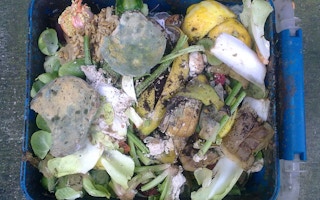Britain appointed its first food waste chief on Monday to help drive a campaign to reduce the millions of tonnes of food binned every year by restaurants, supermarkets and manufacturers.
Ben Elliot, the nephew of Camilla the Duchess of Cornwall and wife of heir-to-the-throne Prince Charles, was appointed to the one-year voluntary role of Food Surplus and Waste Champion by Environment Secretary Michael Gove.
Food waste is increasingly viewed as unethical in a world of rising hunger, as well as environmentally destructive, as wasted food is dumped in landfills where it rots, releasing greenhouse gases, while fuel, water, and energy needed to grow, store and carry it is wasted.
“
As a nation, we need to stop this excessive waste and ensure that surplus food finds its way to people in our society who need it most, and not let it get thrown away and go to landfill.
Ben Elliot, Food Surplus and Waste Champion
“There continues to be an unforgivable amount of food waste which is both morally deplorable and largely avoidable,” said Elliot, co-founder of luxury lifestyle group Quintessentially and a philanthropic foundation that works with food charities.
“As a nation, we need to stop this excessive waste and ensure that surplus food finds its way to people in our society who need it most, and not let it get thrown away and go to landfill,” he said in a statement.
Britain has among the lowest levels of food redistribution in Europe, a system where out-of-date but edible food is given to people in need via charities and food banks, according to FareShare, a leading British food bank charity.
Major supermarkets, food manufacturers and restaurants in September backed a drive to halve Britain’s food waste by 2030 and save the nation 10 billion pounds ($13 billion) a year.
Tesco, Nestle and Coca-Cola were among at least 70 leading companies to sign up to a government-backed plan to reduce the 10 million tonnes of fruit, vegetables and other foods that are binned every year, worth about 20 billion pounds.
In his new role Elliot will work with food businesses across manufacturing, retail and hospitality to tackle waste “from farm to fork”, the government said, under a voluntary monitoring plan.
The government said earlier this month it would look at introducing a requirement for businesses to report annually on food waste policies and set mandatory targets.
Other European countries, including France and Italy, have already adopted national measures to fight food waste.
“Food waste is an economic, environmental and moral scandal. We must end it,” Gove said in a statement.
Globally, one third of all food produced —worth $1 trillion —is binned every year, according to the United Nations’ Food and Agriculture Organization (FAO), and researchers fear annual food waste could rise by a third to 2.1 billion tonnes by 2030.
World leaders pledged to halve food waste by 2030 as part of the global development goals set by the United Nations in 2015.
($1 = 0.7852 pounds)
This story was published with permission from Thomson Reuters Foundation, the charitable arm of Thomson Reuters, that covers humanitarian news, women’s and LGBT+ rights, human trafficking and slavery, property rights, social innovation, resilience and climate change. Visit http://news.trust.org to see more stories.










